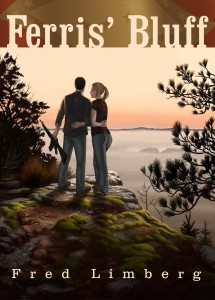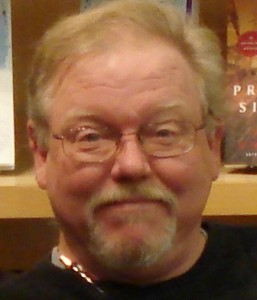I guess that’s what it’s called—genre hopping—when a writer doesn’t stick to one single category. Apparently we’re not supposed to do this. I can’t refer to the exact blog posts or writerly advice articles that caution against it, but they seem quite adamant that as you build your platform and bolster your brand, you will confuse people if you don’t stick to one aisle of the virtual bookstore.
Now, I don’t pretend to be anything other than an indie author with one book out and a number of others in the pipeline, and am no sort of expert on the inner-workings of the publishing industry. Nor do I have any pretense of being either media savvy or adept at anything technological other than banging out a yarn on my keyboard.
I’m an author—not an authority.
But in these heady times while indie authors are enjoying opportunities via a virtual renaissance in reading and book buying, e-publishing, Kindle vs. Nook wars, and author empowerment, who is to say what ought to be done?
We sail on un-charted waters. We make up the rules as we go along and break them at need. We hit the ‘publish’ button, cross our fingers, and wait to see what will happen. Will the romance go over better than the murder mystery or the vampire coming-of-age novel?
What’s wrong with writing a thriller with a bit of romance tucked inside that’s set in a small town, then offering an action-adventure thriller with a strong sci-fi arc, then putting out a genuine whodunit mystery, followed by something geared toward the YA crowd?
I suppose, if you look to traditional publishers and the NYT bestseller list and the authors that perennially appear there, a guy like me might be making a BIG mistake, since the scenario I just presented is what my life is going to be like over the next few months (with hopefully a bit of actual writing tossed in).
John Sandford’s Prey series features 21 thrillers and counting. His new hero, Virgil Flowers, already has 4 books with good old Virgil in the lead role, and it’s joined at the hip to the Prey series and the Lucas Davenport character. John Sandford is a wealthy man. He doesn’t stray from his genre.
Vince Flynn and his Mitch Rapp character have an even dozen novels out there in series. Mr. Flynn is also doing all right for himself. Add Robert Crais, Randy Wayne White, Michael Connelly, and Clive Cussler to the mix. Every one of them is hugely successful and tremendously genre-loyal.
Like I said, I might be making a BIG mistake here…but it’s MY mistake to make. And at the end of the day, it might very well not be a mistake at all.
Here’s the deal: At this point I have no idea what’s going to work as far as my writing is concerned as far as sales are concerned. I’m not even sure what to spend my precious writing time on for my next project.
Why? Because my readers haven’t had the chance to tell me yet!
 Ferris’ Bluff is a pretty good book. It hits a lot of marks—it’s guy friendly with all the action and gunplay, gal friendly in that not only is there a nifty sly romance woven into it, it’s also got a strong sympathetic male lead character women will like. That’s great! I’m selling a few copies! Life is good!
Ferris’ Bluff is a pretty good book. It hits a lot of marks—it’s guy friendly with all the action and gunplay, gal friendly in that not only is there a nifty sly romance woven into it, it’s also got a strong sympathetic male lead character women will like. That’s great! I’m selling a few copies! Life is good!
But it’s not the only story I have to share…and the other stories and characters and situations banging around in my head and (very important!) in inventory, need to and will be offered up as time and resources permit. Each one is very different than Ferris’ Bluff, and each one is similar.
I’m not the only writer who has recently decided to embrace the e-book revolution that has spent many years writing and querying and wondering what might catch someone’s eye. I’m not the only one out there with ‘inventory’, and my inventory isn’t in one narrow genre because I spent a number of years trying different things in hopes something would catch on.
If this sounds like you and your writing experience it’s a good thing, in my opinion. It’s a pragmatic approach. Find out what works. Experiment. Stretch boundaries. Get weird or a little freaky. That’s what writers do. And with e-books gaining in popularity, we can easily and economically get them out there for others to read and evaluate and comment on.
And buy!
And what I think will happen with many of us is that once our readers have the opportunity to let us know—either through reviews or notes on our websites or through Twitter or on Facebook or speak to us ,most loudly, with their hard-earned precious book buying dollars—and tell us what they like best…well…that’s how series are born nowadays!
Maybe. Hopefully.
And once each of us finds what works we should expand on it, enlarge it and exploit the hell out of it. But until we find that niche and settle into a comfortable and hopefully profitable genre, I think we might have to hop about the aisles looking for it and hopefully, have a bit of fun in the process.
[You can find Fred’s book, Ferris’ Bluff on Smashwords or Amazon Kindle. – Ed.]


"I'm an author – not an authority." Totally stealing that. Great job, Fred. I love it!
I gotta tell you… I completely agree.
Over the months, having published two paranormal romance novels and wanting nothing more than to branch out, I've held fast to my dislike for genres. Not only do I never know where my novel falls (it could be this, it could be that), but I want to write the other stuff. Mystery, contemporary, historical maybe. Actually, I've got 3 projects in 3 different genres that I'm working on… simultaneously.
I don't want to be a paranormal romance writer, I want to be a writer. I am a writer, and I want to write… what I want to write. Writing is a love. A passion. Wherever it may end up.
Loved this post. Thanks for sharing.
Excellent comment Allie – well said! Fred laid it out nicely.
Great post. All I can say is, I am a writer and a writer writes. Not only do I cross genre, but I virtually pole vault with glee. I believe (as a reader) if I like an author, I follow his/her name not her slot. But what do I know, I'm just an author.
I break the rules, and I write in different genres. To date, mystery and urban fantasy. But I had an agent tell me up front that's a no, no. Oh well, I write what the muses tell me to.
For years traditional publishers have forced their authors to stick to one genre – or else use a different name. Now with the e-book revolution we can change genres if we want to – I think this is great! Fully agree with Fred and with all these comments. Keep going, guys!
You are so right Gerry. I suppose it might have been that way because it made it easier for agents to know where and how to pitch a client author, and easier for the publishers to know how to market the end-product. Without all that, there is substantially more freedom for creativity. Great comment, thanks!